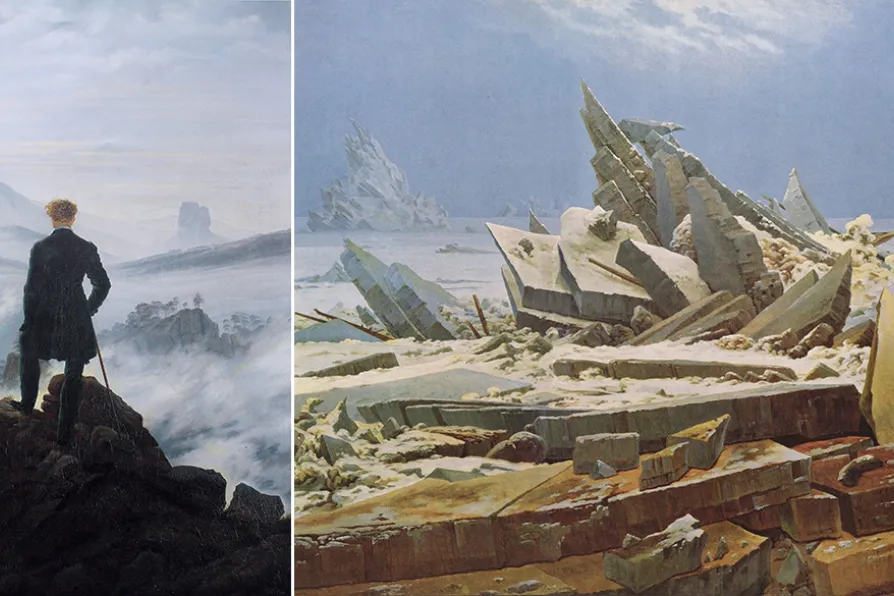Releases from Rahsaan Roland Kirk, Maggie Nicols/Robert Mitchell/Alya Al Sultani, and Gordon Beck Trio and Quintet

 NAZI INFLUENCER: (Above) Caspar David Friedrich’s Wanderer Above the Sea of Fog, 1817-18; (R) The Sea of Ice (1823–1824)
[ Pics: Hamburger Kunsthalle/CC]
NAZI INFLUENCER: (Above) Caspar David Friedrich’s Wanderer Above the Sea of Fog, 1817-18; (R) The Sea of Ice (1823–1824)
[ Pics: Hamburger Kunsthalle/CC]
THE French Revolution sparked great hopes for the rise of the bourgeoisie, the abolition of feudal structures, and the establishment of a capitalist society.
Napoleon centralised power in his person, established an authoritarian regime, and crowned himself emperor in 1804. His wars in Europe served both territorial expansion and the spread of capitalist production relations. The events of 1806, including the defeats of the Prussian army at Jena and Auerstedt, the dissolution of the Holy Roman Empire, and the occupation of German territories by French troops, led to a strong anti-Napoleonic freedom movement in Germany.
Caspar David Friedrich was deeply affected by these events, and national themes shaped his art. His allegories of death and resurrection often transport a patriotic character. It was these national traits, which made sense in the context of the Napoleonic Wars, that were later instrumentalised in a different historical context for the purposes of German fascism.

NICK MATTHEWS recalls how the ideals of socialism and the holding of goods in common have an older provenance than you might think

JAN WOOLF examines work that aims to give viewers a material experience of the environments in the polar north and Britain equally affected by the climate crisis

NICK MATTHEWS previews a landmark book launch taking place in Leicester next weekend

JOHN GREEN observes how Berlin’s transformation from socialist aspiration to imperial nostalgia mirrors Germany’s dangerous trajectory under Chancellor Merz — a BlackRock millionaire and anti-communist preparing for a new war with Russia










